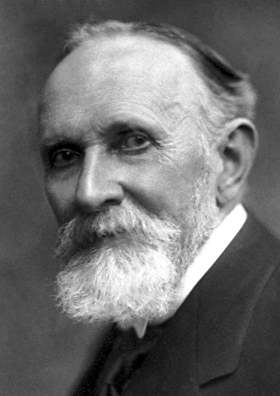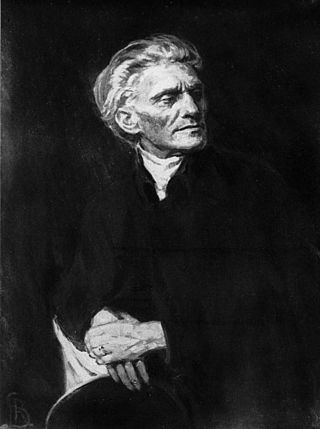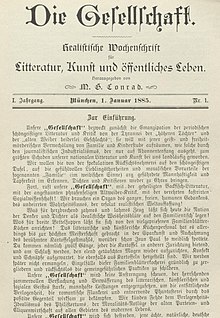
Carl Friedrich Georg Spitteler was a Swiss poet who was awarded the Nobel Prize for Literature in 1919 "in special appreciation of his epic Olympian Spring". His work includes both pessimistic and heroic poems.

Karl Georg Büchner was a German dramatist and writer of poetry and prose, considered part of the Young Germany movement. He was also a revolutionary and the brother of physician and philosopher Ludwig Büchner. His literary achievements, though few in number, are generally held in great esteem in Germany and it is widely believed that, had it not been for his early death, he might have joined such central German literary figures as Johann Wolfgang von Goethe and Friedrich Schiller at the summit of their profession.

George Wyndham, PC was a British Conservative politician, statesman, man of letters, and one of The Souls.

Else Lasker-Schüler was a German-Jewish poet and playwright famous for her bohemian lifestyle in Berlin and her poetry. She was one of the few women affiliated with the Expressionist movement. Lasker-Schüler fled Nazi Germany and lived out the rest of her life in Jerusalem.

Rainald Maria Goetz is a German author, playwright and essayist.
Austrian literature is mostly written in German, and is closely connected with German literature.

Friedrich Konrad Eduard Wilhelm Ludwig Klages was a German philosopher, psychologist, graphologist, poet, writer, and lecturer, who was a two-time nominee for the Nobel Prize in Literature. In the Germanosphere, he is considered one of the most important thinkers of the 20th century. He began his career as a research chemist according to his family's wishes, though soon returned to his passions for poetry, philosophy and classical studies. He held a post at the University of Munich, where in 1905 he founded the Psychodiagnostisches Seminar; the latter was forced to close in 1914 with the outbreak of World War I. In 1915, Klages moved to neutral Switzerland, where over the following decades much of his mature philosophical works were written. Klages died in 1956.

Der Sturm was a German avant-garde art and literary magazine founded by Herwarth Walden, covering Expressionism, Cubism, Dada and Surrealism, among other artistic movements. It was published between 1910 and 1932.

Leopold Hermann Oskar Panizza was a German psychiatrist and avant-garde author, playwright, novelist, poet, essayist, publisher and literary journal editor. He is best known for his provocative tragicomedy, Das Liebeskonzil, for which he served a one-year prison sentence after being convicted in Munich in 1895 on 93 counts of blasphemy. Upon his release from prison, he lived for eight years in exile, first in Zürich and later in Paris.

Siegfried Jacobsohn was a German writer and influential theatre critic.
—first stanza of James Thomson's "Rule, Britannia", written for the masque Alfred
The German Mathematical Society is the main professional society of German mathematicians and represents German mathematics within the European Mathematical Society (EMS) and the International Mathematical Union (IMU). It was founded in 1890 in Bremen with the set theorist Georg Cantor as first president. Founding members included Georg Cantor, Felix Klein, Walther von Dyck, David Hilbert, Hermann Minkowski, Carl Runge, Rudolf Sturm, Hermann Schubert, and Heinrich Weber.

The George-Kreis was an influential German literary group centred on the charismatic author Stefan George. Formed in the late 19th century, when George published a new literary magazine called Blätter für die Kunst, the group featured many highly regarded writers and academics. In addition to sharing cultural interests, the circle reflected mystical and political themes within the sphere of the Conservative Revolutionary movement. The group disbanded when George died in December 1933.

Karl August Bleibtreu was a German writer who promoted naturalism in German literature. He was noted for his aggressive and dogmatic style of criticism, linked to a nationalistic and sometimes antisemitic agenda. His later work was heavily influenced by Nietzsche's theory of the übermensch.

The Morgenblatt für gebildete Stände was a German cultural and literary journal that existed from 1807 to 1865. It appeared daily until 1851, when it was changed to a weekly journal. The Morgenblatt was published by Cotta in Tübingen and later in Stuttgart, and was the most important German literary and cultural journal of its time.
Jogaku zasshi was a women's magazine published in Tokyo, Japan, during the Meiji era between July 1885 and February 1904. It is the first women's magazine in the country. In addition, it was the most significant publication in its category.
Gesellschaft is one of the categories used by the German sociologist Ferdinand Tönnies to categorize social ties.

Hanns Theodor Wilhelm Freiherr von Gumppenberg was a German poet, translator, cabaret artist and theatre critic. He used the pseudonyms Jodok and Professor Immanuel Tiefbohrer.
Kunst und Künstler: illustrierte Monatsschrift für bildende Kunst und Kunstgewerbe was a German periodical, that shaped the reception of art during the first third of the 20th century. It was in circulation between 1902 and 1933.













